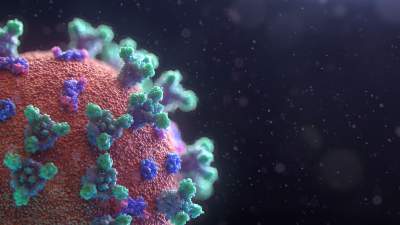January 1, 2019 is the implementation deadline for 2019 CPT® codes, and it will be here before you know it. If you’re a pathology coder, you very well may be biting your nails at the upcoming changes—since updates to the subfields of pathology seem to change a lot faster than the codes themselves!
If you’re nervous, set yourself on a path to smooth coding with a little guidance. Compliance manager Peggy Slagle offers a 4-part set of live webinars on pathology CPT® codes as part of ProfEdOnDemand’s comprehensive2019 Coding Updates Virtual Boot Camp. Slagle will cover even the trickiest areas, such as changes to molecular pathology and Proprietary Lab Analyses (PLA) codes, so you can breathe a little easier with the changes coming your way.
6 Revised Molecular Pathology Procedures Codes
Thankfully, you won’t be blindsided come January 1 if you prep now on some of the changes already revealed. For instance, published in March, several revised Molecular Pathology (MoPath) Tier 2 codes are set to take effect on the first of the year. These codes, all pertaining to molecular pathology procedures, include:
Identification of Variants
- 81400, Level 1 (eg, identification of single germline variant [eg, SNP] by techniques such as restriction enzyme digestion or melt curve analysis)
- 81401, Level 2 (eg, 2-10 SNPs, 1 methylated variant, or 1 somatic variant, or detection of a dynamic mutation disorder/triplet repeat)
Analysis of Exons
- 81403, Level 4 (eg, analysis of single exon by DNA sequence analysis, analysis of >10 amplicons using multiplex PCR in 2 or more independent reactions, mutation scanning or duplication/deletion variants of 2-5 exons)
- 81404, Level 5 (eg, analysis of 2-5 exons by DNA sequence analysis, mutation scanning or duplication/deletion variants of 6-10 exons, or characterization of a dynamic mutation disorder/triplet repeat by Southern blot analysis)
- 81405, Level 6 (eg, analysis of 6-10 exons by DNA sequence analysis, mutation scanning or duplication/deletion variants of 11-25 exons, regionally targeted
cytogenomic array analysis) - 81407, Level 8 (eg, analysis of 26-50 exons by DNA sequence analysis, mutation scanning or duplication/deletion variants of >50 exons, sequence analysis of multiple genes on one platform)
Topsy turvy wording changes: The revisions to the wording of each definition are quite extensive. Be sure all coding and billing staff are up speed on these changes. You’ll want to ensure the documentation sets you up to easily select the appropriate code.
It’s That Time Again: 18 New PLA Codes
Another crucial change in pathology—and one with a much closer implementation date—involves PLA codes. Mentioned in a blog post back in January, the intent of PLA codes is to provide fairer payment for clinical diagnostic laboratory tests (CDLTs) and advanced diagnostic laboratory tests (ADLTs).
The latest PLA codes are published on the website of the American Medical Association (AMA) on a quarterly basis. You faced new codes in January, and again in July, so now it’s time for a few more. The 18 latest codes, approved just last month, are set for implementation Oct. 1, 2018. Several of these codes, especially the add-on codes dealing with CYP2D6 (cytochrome P450, family 2, subfamily D, polypeptide 6), have very similar wording, so go through these carefully to understand the nuances of each.
Coding order: When coding for laboratory services, if a PLA code exists for a given proprietary laboratory service, use only that PLA code. Absolutely no other CPT® code should be used in addition to or as replacement for that PLA code.
Put Your Coding Knowledge Under the Microscope
There’s no doubt pathology coders have plenty of changes to get your heads around—or risk reimbursement denials and delays. In addition to the yearly regular CPT® updates, you also have the quarterly PLA updates to memorize. Stay a step ahead of the rest with a little extra preparation through this year’s jam-packed Coding Updates Virtual Boot Camp!



